Jyoti Mukul in New Delhi
Sometime in the 1990s, a paper napkin kept on an empty plate at a fancy party turned out to be worth a few crores.
It carried a handwritten note from the minister of petroleum recommending allotment of a fuel station. Becoming a retailer for the state-owned refiners was the shortest route to untold riches; the profit margins were low, but the huge volumes more than made up for that.
And sifarish was essential to unlock the fortune. Grapevine has it that the napkin was duly attached to a file in the ministry as evidence of the minister's directive.
The petroleum ministry, housed in the second floor of Shastri Bhawan, an uninspiring Soviet-style building in downtown Delhi, is - perhaps with the exception of telecommunications - the favourite child of controversy.
Probes, hectic lobbying, muckraking - these are all part of the petroleum ministry's corridors.
It is no surprise then that in the 49 years since the ministry was set up in 1962, there have been 41 ministers.
Ram Naik of the Bharatiya Janata Party claims that he is the only petroleum minister to last the full five years at a stretch (1999 to 2004).
...
Corruption, favourtism, controversy dog oil ministry
Image: Stakes in the business are sky high.Within a few days of the report being leaked, the Central Bureau of Investigation carried out raids on the former director general of hydrocarbons, V K Sibal, on alleged charges of favouring GX Technology to carry out technical surveys. Sibal is, in fact, no stranger to controversy.
In 2009, when the war between the Ambani brothers over gas from the Krishna-Godavari basin was at its worst and Sibal was the sector regulator, there were allegations that his daughters had enjoyed the hospitality of Mukesh Ambani's Reliance Industries in Mumbai.
Sibal clarified that his daughters had paid all the bills for the Reliance Industries flat they had used.
A few months before the CBI raid, Sibal had told Business Standard that he regretted being so proactive during his stint as the director general of hydrocarbons.
You could call it the curse of oil.
The stakes in the business are sky high. From exploration to refining, warehousing, retailing and exports - the money runs into hundreds of thousands of crores.
...
Corruption, favourtism, controversy dog oil ministry
Image: Vedanta bought 28.5 per cent stake in Cairn India for $4 billion.The mafia too gets a piece of the action by siphoning off diesel and kerosene for the black market.
Those who deal with the sector defend their actions.
"We are not gods here. If somebody wants to pick holes, they can. Till the time [state-owned] Oil & Natural Gas Corporation was the only producer [of crude oil and gas], nobody raised a finger.
"All the people dealing with the sector are suspects at large and the only way to avoid this is to nationalise the business," says a senior government official who has worked closely with petroleum companies.
Petroleum, and the big money it comes with, has attracted controversies throughout the world.
It has been at the centre of not only the West Asian crisis but has also served as the cause for civil war and corruption in governments in many countries.
"The sector is both controversial and corrupt. It contributes to corruption in countries that lack strong civil institutions and which have a lot of income inequality, which, unfortunately, describes many oil-exporting countries," says Paul Roberts, author of The End of Oil.
...
Corruption, favourtism, controversy dog oil ministry
Image: Mani Shankar Aiyar's stint was untainted.John D Rockefeller was infamous for his monopoly through Standard Oil. He was known for his cutthroat practices, such as physical threats, bribery and even sabotage, that drove competition out of business.
In any sector as crucial to development as petroleum, it is not easy to be controversy-free.
"I am very glad that I came away untainted," says Mani Shankar Aiyar who was petroleum minister for less than two years from May 2004 to January 2006.
Aiyar's stint may have been untainted but it was not controversy-free.
Aiyar and Sibal, who took over as the director general of hydrocarbons in 2004, had a public spat with the late Subir Raha, then chairman of ONGC.
Aiyar chided Raha for not doing enough to develop the crude oil and gas deposits in the country and instead, trying to diversify into businesses such as refining and power.
Sibal ridiculed ONGC's discovery claims.
Raha remonstrated.
Things came to a flashpoint and the petroleum ministry, the largest shareholder in ONGC, said it would appoint two more directors on the company's board of directors and one of them would be Sibal.
...
Corruption, favourtism, controversy dog oil ministry
Image: Murli Deora was said to be close to late Dhirubhai Ambani.Finally, Aiyar had to relent.
Five years later, Aiyar says people see a controversy even when there may be just a difference of opinion.
He says the only serious difference he had during his tenure was with Raha.
"It was on the purpose for which ONGC should work. He felt it was to maximise profit but I felt that is not the purpose of the public sector."
In January 2006, when Aiyar moved out of the ministry, some said his support to the Iran-India gas pipeline had become an embarrassment for the Manmohan Singh government which was pursuing the Indo-US nuclear deal.
"When I was given the portfolio, it was with the understanding that it is temporary along with panchayati raj," says Aiyar in his defence.
"My performance was outstanding but the authorities felt it was essential to give it to somebody else."
Prime Minister Singh replaced Aiyar with Murli Deora, known to have been close to the late Dhirubhai Ambani.
During Deora's tenure (2006-2011), charges of favouritism reached such a pitch that the ministry came out with full-page advertisements in newspapers to clarify its stand.
...
Corruption, favourtism, controversy dog oil ministry
Image: S Jaipal Reddy came in with a clean image.Mukesh said RIL could not sell any quantity below the government-decided price of $4.2 per mmBtu.
The petroleum ministry said that gas was a national asset and its price could not be determined by a family agreement.
Incensed, Anil Ambani openly criticised the ministry in his company's annual general meeting, something which a head of a private company will seldom do.
The Supreme Court finally decided the case in favour of Mukesh Ambani. It ruled that crude oil and gas were national assets, thereby taking away a private company's right to market gas itself.
The dispute seemed to have settled down by June 2009. In just another 18 months, the Niira Radia tapes started making headlines.
Deora found an unpleasant mention in the conversation between Radia and N K Singh.
Within a few weeks in January 2011, Deora was moved to corporate affairs.
Deora's exit happened when the Cairn-Vedanta deal was stuck at the ministry, waiting for an approval from the government.
The new minister, S Jaipal Reddy, came in with a clean image, though he is not a very strong minister.
...
Corruption, favourtism, controversy dog oil ministry
Image: Anil Ambani has openly criticised the ministry."There have been three ministers in six years which itself indicates that the petroleum ministry is not functioning well," says BJP's Naik.
It would be tempting to conclude that the musical chairs happened because of the controversies. But there is little evidence to prove that.
Congress leader Satish Sharma, a confidante of the Gandhi family, faced CBI investigation on petrol pump allocations but he was never removed from office.
There was uproar over the allocation of petrol pumps during Naik's tenure too.
Naik says it was just allegations hurled at him by his detractors, and no corruption charges were brought against him.
He attributes his record to his upbringing and "training with the Rashtriya Swayamsevak Sangh".
"In 1954, before joining politics, I worked as a company secretary. Later, from 1957 to 1958, I worked in the accountant general's office where we used to issue cheques worth lakhs in those days."
There were other charges, too, that Naik had to defend himself against.
Though India took the first steps towards getting overseas oil assets under him, ONGC's acquisition of properties in Sakhalin and Sudan came under a lot of scrutiny.
"That time we had invested around Rs. 8,200 crore (Rs. 82 billion) (in Sakhalin and Rs. 3,200 crore (Rs. 32 billion) in Sudan.
...
Corruption, favourtism, controversy dog oil ministry
Image: Petroleum sector is more transparent than many departments.Commentators called it 'junk' investments, but now oil and gas are flowing from it," he says.
Both Naik and Aiyar say that not everyone in the sector is corrupt, but agree that it is the nature of the beast that breeds corruption.
Aiyar is more categorical when he says that national and corporate interest may not always meet and accelerated growth has given rise to accelerated corruption.
Naik says transparency alone does not help since whatever is put in the public domain can always be questioned by someone who does not agree with a decision.
In fact, the petroleum sector is more transparent than other departments such as science and technology, and defence that handle more government money but are allowed secrecy in the name of national interest.
Petroleum ministry officers, usually perceived to be representing one lobby or the other, say they do a tightrope walk every day: indecision can cause reprimand, while a wrong decision can get one hanged.


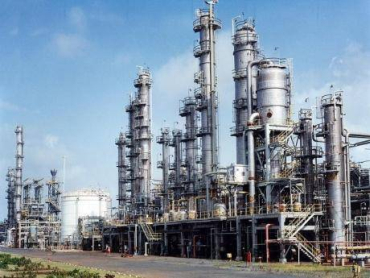
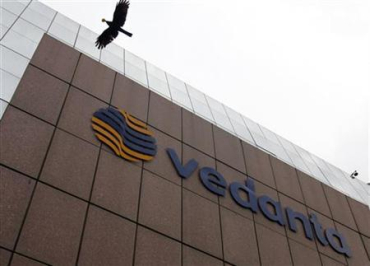
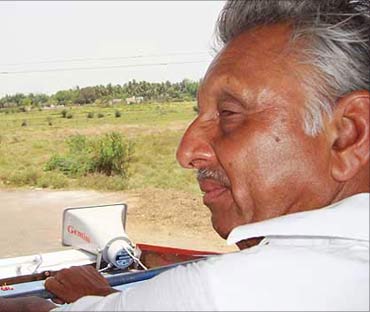

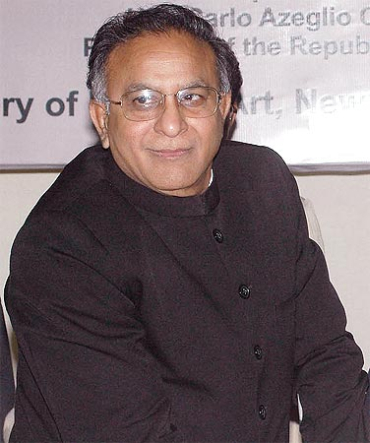
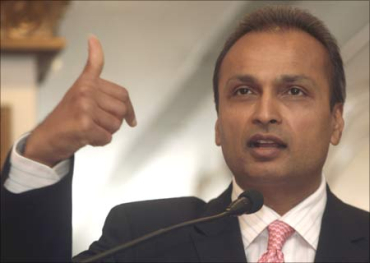
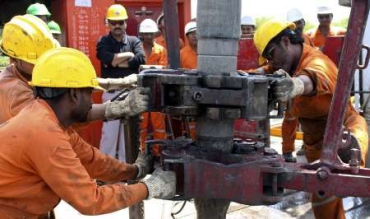

article